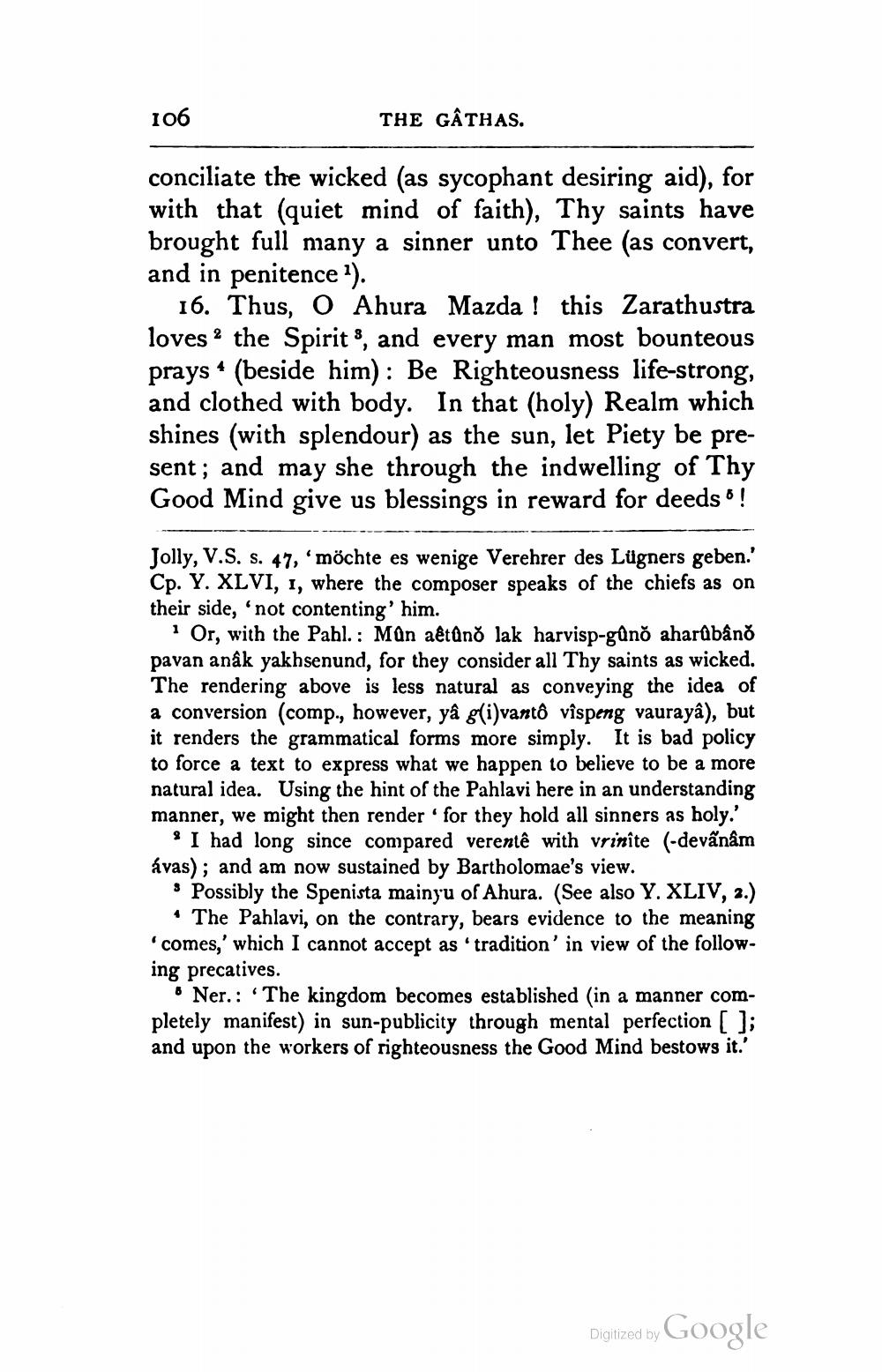________________
106
THE GÂTHAS.
conciliate the wicked (as sycophant desiring aid), for with that (quiet mind of faith), Thy saints have brought full many a sinner unto Thee (as convert, and in penitence ?).
16. Thus, 0 Ahura Mazda ! this Zarathustra loves 2 the Spirits, and every man most bounteous prays * (beside him): Be Righteousness life-strong, and clothed with body. In that (holy) Realm which shines (with splendour) as the sun, let Piety be present; and may she through the indwelling of Thy Good Mind give us blessings in reward for deeds!
Jolly, V.S. s. 47, möchte es wenige Verehrer des Lügners geben.' Cp. Y. XLVI, I, where the composer speaks of the chiefs as on their side, 'not contenting' him.
1 Or, with the Pahl.: Mün aêtûnõ lak harvisp-güno aharâbânð pavan anak yakhsenund, for they consider all Thy saints as wicked. The rendering above is less natural as conveying the idea of a conversion (comp., however, yâ g(i)vantô vispeng vauraya), but it renders the grammatical forms more simply. It is bad policy to force a text to express what we happen to believe to be a more natural idea. Using the hint of the Pahlavi here in an understanding manner, we might then render for they hold all sinners as holy.'
* I had long since compared verentê with vrinîte (-devấnâm ávas); and am now sustained by Bartholomae's view.
• Possibly the Spenista mainyu of Ahura. (See also Y. XLIV, 2.)
• The Pahlavi, on the contrary, bears evidence to the meaning 'comes,' which I cannot accept as 'tradition' in view of the following precatives.
Ner.: 'The kingdom becomes established (in a manner completely manifest) in sun-publicity through mental perfection []; and upon the workers of righteousness the Good Mind bestows it.'
Digitized by
Digitized by Google




